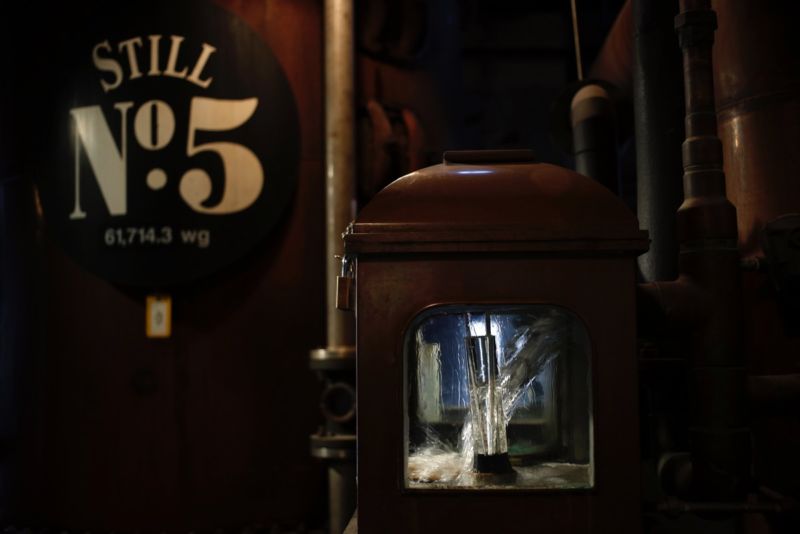There really is something unique about Tennessee whiskey, study finds.
Ars Technica » Scientific Method 2019-04-02

Enlarge / White lightning distilled alcohol streams out of a still. It must be filtered through charcoal before barrel aging to be legally branded "Tennessee whiskey." (credit: Luke Sharrett/Bloomberg/Getty Images)
Scientists are beginning to unlock the scientific secrets of what makes so-called "Tennessee whiskey" so distinct from other whiskeys, bourbons, and similar spirits, according to a presentation last weekend at a meeting of the American Chemical Society in Orlando, Florida. Specifically, they've identified many of the key aroma-active compounds responsible for the beverage's distinctive flavor profiles.
"We're aiming to create a methodology, a practical tool, to reproducibly measure the changes that happen to guide distillers," said lead investigator John Munafo of the University of Tennessee. "By mapping out all the different compounds, we can better understand what each one contributes, and in what concentrations, so distillers can tweak [those parameters] to get the flavor profile they want. That variety is what makes whiskey so interesting."
Munafo spent 12 years as director of flavor science and plant chemistry at Mars Incorporated, working primarily with chocolate (naturally). He's doing similar chemistry research at the University of Tennessee, frequently partnering with local agriculture and industry, like Sugarlands Distilling Company in Gatlinburg. Sugarlands makes an award-winning whiskey called Roaming Man, and it's keen on gaining a better understanding of the underlying science of its distillation process.